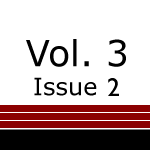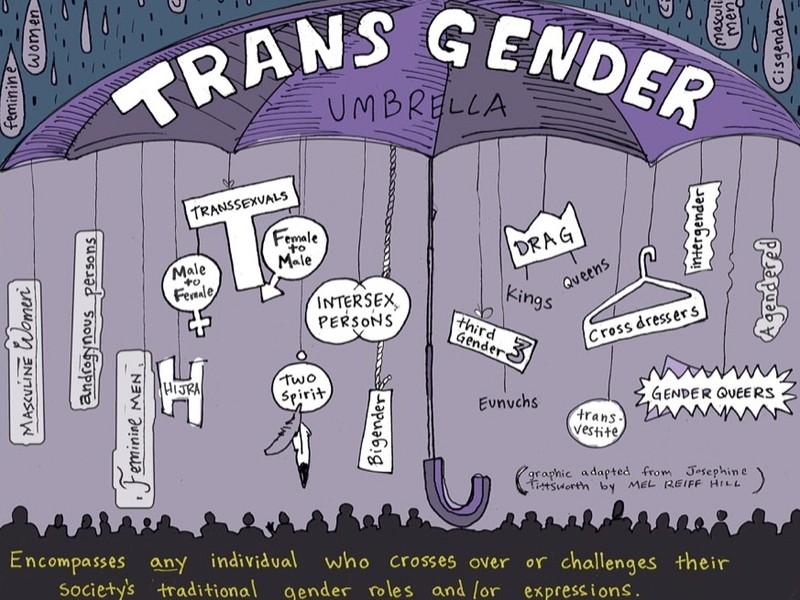Louis C.K.’s ‘Weird Ethic’: Kairos and Rhetoric in the Network

In December 2011, comedian Louis C.K. captured headlines with his self-produced and self-distributed comedy special Live at the Beacon Theatre. A former writer for Chris Rock and Conan O’Brien, a film director, and a stand-up comedian known for his absurdist brand of humor, C.K. has become one of the most popular comedians in the U.S. His stand-up act is wide-ranging, dealing with his life as a father, white privilege, and everything in between. C.K. filmed, edited, and produced Live at the Beacon Theatre with his own money and then released it on his website as a $5 download. The project’s success surprised everyone, including C.K., who was hoping that the experiment would break even financially. Instead, it grossed more than $1 million. The distribution model of Live at the Beacon Theatre takes advantage of a media environment in which authors and artists can distribute their work with fewer intermediaries. And while this model is relevant to digital rhetoricians, C.K.’s potential contribution to a networked rhetoric resides not in how he has decided to distribute his comedy but rather in his method of invention. C.K.’s approach to kairos, to the complex forces that shape rhetorical situations, offers an alternative to the dominant mode of contemporary networked rhetoric: snark.
Networked rhetorical situations mean that audiences and critics arrive from all angles, regardless of invitation. Networks, for all of their promise, raise difficult questions about audience and expose the rhetor’s vulnerability. Jeff Rice points to these contradictory forces when he describes networks as “open places of rhetorical production” that make for fluid relations: “because of the influence of new content, other ideas, and alternate places of meaning, a connection that exists right now might not exist later” (131). These connections that link up and then dissolve make for difficult rhetorical spaces. Others arrive from all angles, and these arrivals invite us to consider how the rhetor is called to respond. This problem is not created by networked life, but life in the network certainly exposes the predicaments of vulnerability to others. For Diane Davis, the arrival of others exposes a rhetorical imperative, “an originary (or preoriginary) rhetoricity—an affectability or persuadability—that is the condition for symbolic action” (2). Before we act or argue or persuade, we are affected and called forth by various others.
Similarly, Richard Marback has argued that rhetorical theory might benefit from a different consideration of vulnerability, one that moves beyond understanding it in terms of weakness. Instead, he argues for a more sustained consideration of how vulnerability lays the groundwork for rhetorical action:
What we gain in acknowledging and accepting our vulnerability to the appeals of others is an awareness of ourselves in our responsiveness to others. If we are aware of our responsiveness to others, we are aware of ourselves as being affected by them; we are aware at some level and in some sense of the irresistible power of their persuasiveness. Such awareness cannot but sensitize us to the subtleties and gradations of our vulnerabilities. (10–11)
Marback goes on to argue that recognizing vulnerability would mean to “acknowledge our openness to the conditions of living” (12). Both Davis and Marback show us that vulnerability is an unavoidable condition, one with which rhetoricians must continually grapple, particularly in our networked encounters. For this reason, a networked rhetoric needs to be attuned to kairos, the opportune and unpredictable moments of persuasion, moments that call on the rhetor to respond. The vulnerable rhetor may be called to respond at any moment by a wide variety of interlocutors and audiences. This predicament calls for something more than scripted responses.
A rhetor can only prepare for the unpredictability and mess of rhetorical situations through practice. The rhetorical tradition of the progymnasmata—a set of pedagogical exercises—was designed for just this type of practice. With exercises such as imitation or the writing of fables, teachers in the rhetorical tradition have helped students attune themselves to the unpredictability of rhetorical situations. Through experimentation, students can use the progymnasmata to craft a rhetorical sensibility.
Louis C.K. uses a similar method, but he acts as his own instructor. He attunes himself to the possibilities and predicaments of kairos by not only responding to unpredictable rhetorical situations but also by constructing his own predicaments. By creating (or, better, composing) difficult situations, C.K. forces himself to confront the vulnerability and shame of the kairotic moment. Placing himself in front of an audience and opening himself to the possibility of failure, C.K. must respond to the opportunities and pitfalls of kairos. In effect, he is allowing us to see his ever-evolving rhetorical education—he is continually performing his rhetorical experiments in public. This practicing in public stems from C.K.’s willingness to be exposed, to be placed in a vulnerable situation, to open himself up to risky situations in front of an audience.
C.K.’s method is a response to the vulnerability of life in a networked society. In an interview on Marc Maron’s popular WTF podcast, C.K. described his processes of invention. Based on that interview, we can glean a great deal about C.K.’s method of invention, a “weird ethic” of practicing in public. If teachers of ancient rhetoric used tools like the progymnasmata for attuning students to the unpredictability of kairos, C.K. is showing us how such rhetorical practice need not always be performed behind closed doors or in the classroom. But he is also showing us an alternative to the dominant mode of networked rhetorical situations: snark.
Snark
Given that contemporary rhetorical practice is largely defined by snark, C.K.’s willingness to place himself in tight spots and unpredictable situations provides a novel mode of invention. Snark—a portmanteau of “snide” and “remark”—defines contemporary rhetoric in the network. From the mocking tone of Gawker blogs to YouTube comment trolls to flame wars, digital spaces can be caustic places. Snark is one response to this set of problems. It offers jabs and opinions in a knowing tone, attacking the opposition coldly or preemptively insulating the author against attacks and trolling. This response to the unpredictability of the network is what currently dominates rhetorical practice in digital spaces. Thrown into a kairotic situation where various audiences will view your video or listen to your podcast or respond to your blog post, the digital rhetor can use snark to make it clear that the various others with which they collide are doing no damage. Snark attempts to protect against shame and vulnerability.
But we can hardly blame the rhetor that turns to snark. An example will help clarify what I mean. In a 2010 story about the difficulties of online conversation, NPR correspondent Laura Sydell offered the story of Miki Hsu Leavey. After the passage of the Patient Protection and Affordable Care Act, Leavey wrote a “heartfelt, thankful letter” to The Napa Valley Register (Sydell). In the letter, published on the Register’s website, she explained that the bill would allow her to get coverage regardless of her Lupus, her husband’s liver cancer, and her son’s pre-existing heart condition. In response to this letter, a commenter on the Register’s website wrote the following:
This letter is indicative of the intellectual bankruptcy of the left. Rather than explain in any way how the new legislation will empower providers to heal the sick more efficiently, reduce the bureaucratic restrictions to access, bring new treatments to market or reduce the cost to society, all they do is make a shameless appeal to the heartstrings. ‘oh, my poor baby is sick; only the Great Obama can save him!’ Makes me sick just reading it. The inference, of course, is that anyone opposing this government power grab must be in favor of crippling our children, abandoning the elderly and torturing the disabled. Intellectually bankrupt! (“Discussion”)
The commenter responds to a perceived attack on his or her own position (opposition to a “government power grab”) by assuming that Leavey is a stand-in for “the left.” Feeling that s/he has been put in the position of villain, the commenter mocks Leavey for turning to “the Great Obama.” Given such comments, could one blame Leavey for second-guessing her decision to expose herself to the network? This commenter’s snarky response exposes not only Leavey’s vulnerability but also the commenter’s exposedness, which causes the commenter to employ snark when confronted with a letter that threatens his or her political position and identity. In a space of collisions, networked rhetors often seek solace in snark. In his willingness to embrace vulnerability, Louis C.K. shows us another way.
On a High Wire
C.K’s appearance on Maron’s WTF podcast is particularly useful for understanding his methods and processes. Maron has known C.K. since his early days as a stand-up comedian, and his interview questions link C.K.’s recent success to his early days in stand-up comedy. During the interview, Maron offers an interesting encapsulation of C.K.’s guiding ethic: “You very consciously let things get so fucking bad for yourself in order to see if you can rise from it . . . that’s always been this weird ethic you had” (Maron, Louis C.K. Part 1). Maron provides various examples of this from early in C.K.’s career, including his decision to purchase a BMW on his American Express card (he subsequently defaulted). This early behavior was erratic and reckless, and his stand-up comedy at the time did not necessarily benefit from it. C.K. admits that his stand-up act, until recent years, was a scripted one that could be thrown off by a simple comment from an audience member. More recently, he has demonstrated a willingness to emerge from a kairotic moment by constructing predicaments and responding to them.
In the interview with Maron, C.K. expresses admiration for performers with this kairotic sensibility, and he offers Jackie Gleason as an example:
Gleason didn’t come to rehearsals. Everybody rehearsed without him, and then he would just come in and go ‘Alright what are we doing?’ And he’d know half his lines, and he didn’t know the blocking . . . . Back then, everyone on the planet Earth watched The Honeymooners . . . . It was like 50 million people. So, in front of all those people . . . you could see him in some scenes like ‘I’m not sure where I am or what’s supposed to happen in this scene. I’m just going to do this: Bwaaa!’ And he would just be hilarious. (Maron, Louis C.K. Part 2)
Gleason was forced to respond in front of a massive audience, and he did so by relying on an attunement to kairos rather than the memorization of a script. C.K. expresses an admiration for this approach, saying that Gleason “put himself on a high wire.” He knew he had to perform his way out of the situation.
This same approach is evident in C.K.’s own work as he insists that material he has performed be discarded as soon as it airs on television. While waiting for his HBO series Lucky Louie to air, C.K. created a one-hour stand-up special of brand new material. Knowing that the TV show would either be a success (meaning the end of his stand-up career) or a flop (meaning that he needed to make money to support his family), C.K. began developing material for this special, entitled Shameless. As he explains, every stand-up set that he did in preparation for Shameless was high stakes. Forced into this situation, C.K. filmed Shameless and then made a daring choice: “I threw away every minute of it . . . I’m never telling those jokes again. Never” (Maron, Louis C.K. Part 2). This approach is somewhat rare in the stand-up comedy community. While comedians are always developing new material, they rarely commit to throwing away all previous material. In fact, comedians are often much like musicians, relying on their “hits” during performances.
What is the rhetorical value of painting oneself into a corner in this way, throwing away material that has proven successful? This method insists upon an opening up to kairos and vulnerability. The rhetor exposes herself to shame. S/he is placed into a vulnerable position and must craft a kairotic sensibility not unlike Gleason during his work on The Honeymooners. There is no practicing behind the scenes or using snark to guard against unpredictability. Instead, the rhetor practices in front of the audience, creating a high stakes situation to which s/he must respond effectively.
‘Can you get me a helicopter?’
Louie – Helicopter Scene from Jim Brown on Vimeo.
This scene from the pilot episode of the hit television show Louie (this is not the same show as Lucky Louie, which was not renewed after its first season on HBO) is a perfect example of C.K.’s absurdist humor. At the end of a disastrous first date, C.K’s companion is so uncomfortable that she escapes via helicopter. The scene arrives, seemingly, out of nowhere. But for C.K., it is the most important part of the episode for a number of reasons: “things like the helicopter exist for two reasons. One is just that I like it . . . [but] also I get off on squeezing a lot out of very little money. The budget for this show was tiny, and I wanted to show FX [the show’s network] that I could do a lot with money” (Maron, Louis C.K. Part 2). When shooting for Louie started, C.K. asked his production manager, Blaire Breard, for the helicopter: “I said to her: ‘Can you get me a helicopter?’ That was like one of the first things I said to her” (Maron, Louis C.K. Part 2). This was not an easy task, and Breard continued to try to talk C.K. out of it, due to its expense. But the helicopter scene happened because C.K. committed to the absurd request and insisted that his crew do so as well:
She would say to me ‘I’m not finding a helicopter yet. Start thinking of an alternate, and I’d say to her there isn’t an alternate. Get a helicopter. And she’d keep working on it and working on it. And then she found this dude who, he’s a new helicopter guy. He’s the new guy in town. (Maron, Louis C.K. Part 2)
Typically, the helicopter scene might be seen as an extravagance, a way to flaunt a large budget. For C.K., it’s precisely the opposite. He committed to this scene knowing the risks involved. There was no plan B. Yes, this is a commitment to absurdist comedy, but it is also a commitment to a manufactured constraint, one that forces C.K. and those around him into a kairotic predicament and the possibility of failure. It is this commitment that offers an answer to snark, which is allergic to failure and vulnerability.
Shame and Rhetoric in the Network
In the wake of Live at the Beacon Theatre, designer and writer Frank Chimero blogged about C.K.’s recent success. From a hit television show to sold out theatres, C.K. has tapped into something, and Chimero believes that something is shame:
Louie [sic] CK has jokes because he is ashamed of his body, ashamed of his thoughts, his culture, his whiteness, whatever. Every joke seems to be about shame in some way. Ashamed of the things he doesn’t do that he knows he should. (Chimero)
An example of C.K.’s discussions of shame might help here. Here’s a brief clip from Live at the Beacon Theatre.
“First Class” from Jim Brown on Vimeo.
In this clip, C.K. shares with us his own shame, expressing something universal about how we fantasize about good deeds in order to provide ourselves with enjoyment. Chimero argues that “shame is diffused through its publication and distribution. Shame is reduced through its sharing.” While I’m not sure that shame is reduced through sharing, it seems clear that the material is rhetorically effective. Chimero is right. The commonplace of shame runs through all of C.K.’s material, from his stand-up comedy to his television shows. And this commonplace is tied directly to the method of invention I’ve been tracing out here. Stripped of the crutches of a previous material or the scaffolding of old jokes, committed to absurd premises, open and affectable, C.K. is forced (and forces himself) to stand naked in front of his audience. He insists upon crafting difficult situations, leaving open the possibility of shame, and then responding.
Embracing the shame and vulnerability of kairos offers one alternative to the snark of contemporary rhetoric in the network. Snark emerges as a defense mechanism against the vulnerability of a networked world. But an attunement to kairos requires that the rhetor resist falling back on the callous, cynical defense mechanisms built in anticipation of the judgment of others. Let’s be clear: This is not about meeting snark with a saccharine form of sincerity. Anyone who has seen Louis C.K.’s act knows that this would be a radical mischaracterization. Instead, C.K.’s commitment to shame is a result of his willingness to emerge from kairos by forcing himself to, as Chimero notes, distribute his shame. This is the true significance of Live at the Beacon Theatre, an hour of brand new material that continues C.K’s penchant for shame and humiliation (his own and ours). He offers an alternative to the armor that snark attempts to create—a shell that guards against the shame of being exposed to/by others, an exposedness that is unavoidable in a networked society.
There are other ways to link Louis C.K. to rhetoric and technology. During their interview, Maron reminisces about a computer that he and C.K. found on the street. C.K.’s mother was a computer programmer, and he was a self-described junior high AV nerd. He fixed the computer that he and Maron found, and he ended up mining various files for standup material. He writes and edits his television show on a 13-inch MacBook Pro. He shoots the show on the RED digital camera and uses fixed focus lenses, meaning that lenses have to be changed out for every shot. In his own words, he does things in “the most complicated way possible.” But like his choice to distribute his comedy special online, this use of technology is really just an example of his weird ethic, his choice to put himself on a high wire. With his talent for creating tight spots, for constructing situations that he will have to write his way out of, for remaining open to vulnerability, failure, and shame, C.K. provides us with an alternative to snark and cynicism. By cultivating an attunement to kairos and a recognition of the rhetorical value of exposedness in the network, as C.K. does, rhetors can learn how to practice in public and avoid the trappings of snark.
Works Cited
- Chimero, Frank. “Louis CK’s Shameful Dirty Comedy.” Frankchimero.com. 19 Dec. 2011. Web. 1 June 2012.
- Davis, Diane. Inessential Solidarity: Rhetoric and Foreigner Relations. 1st ed. U of Pittsburgh P, 2010. Print.
- “Discussion : Health Care Bill Lifts a Burden.” Napa Valley Register. Napa Valley Register, n.d. Web. 1 June 2012.
- Marback, Richard. “A Meditation on Vulnerability in Rhetoric.” Rhetoric Review 29.1 (2010): 1-13. Print.
- Maron, Marc. Louis C.K. Part 1. Audio Recording. WTF with Marc Maron.
- —. Louis C.K. Part 2. Audio Recording. WTF with Marc Maron.
- Rice, Jeff. “Networks and New Media.” College English 69.2 (2006): 127-133. Print.
- Sydell, Laura. “Website Editors Strive To Rein In Nasty Comments : NPR.” NPR.org. NPR, 27 May 2010. Web. 1 June 2012.




 James J. Brown, Jr. is an assistant professor of English at the University of Wisconsin-Madison where he also teaches in the Digital Studies program. His work has appeared in College Composition and Communication, Pedagogy, and The Computer Cultures Reader. His research and teaching focus on rhetoric, writing, and new media studies, and he recently published an essay in Computers and Composition entitled "Composition in the Dromosphere" that theorizes the mashup as a writing practice attuned to the speed of the network.
James J. Brown, Jr. is an assistant professor of English at the University of Wisconsin-Madison where he also teaches in the Digital Studies program. His work has appeared in College Composition and Communication, Pedagogy, and The Computer Cultures Reader. His research and teaching focus on rhetoric, writing, and new media studies, and he recently published an essay in Computers and Composition entitled "Composition in the Dromosphere" that theorizes the mashup as a writing practice attuned to the speed of the network.